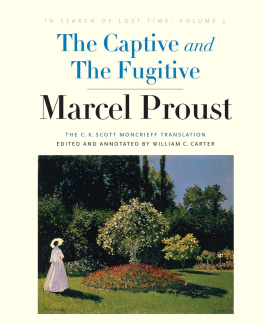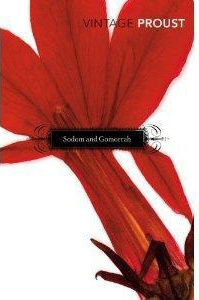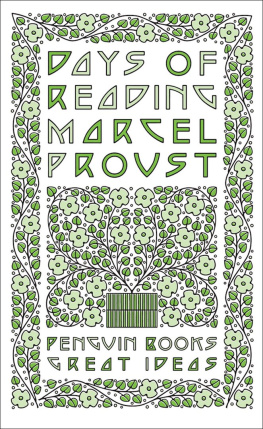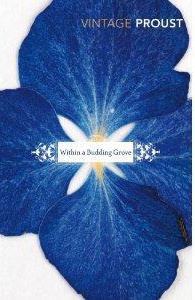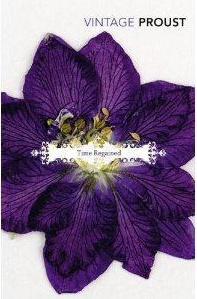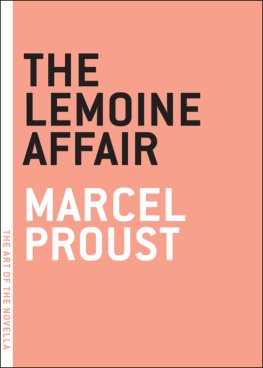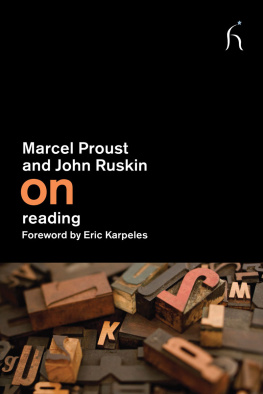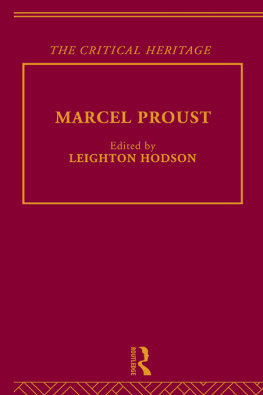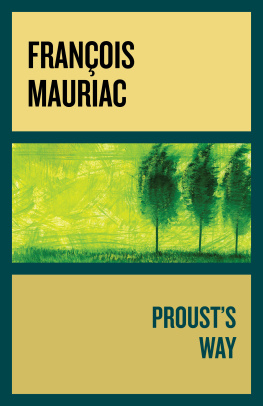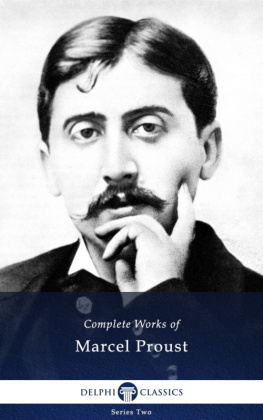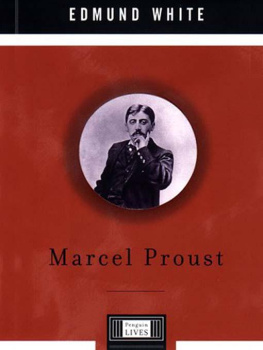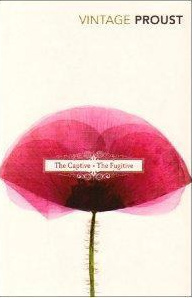Marcel Proust - The Captive and The Fugitive
Here you can read online Marcel Proust - The Captive and The Fugitive full text of the book (entire story) in english for free. Download pdf and epub, get meaning, cover and reviews about this ebook. year: 2023, publisher: Yale University Press, genre: Science fiction. Description of the work, (preface) as well as reviews are available. Best literature library LitArk.com created for fans of good reading and offers a wide selection of genres:
Romance novel
Science fiction
Adventure
Detective
Science
History
Home and family
Prose
Art
Politics
Computer
Non-fiction
Religion
Business
Children
Humor
Choose a favorite category and find really read worthwhile books. Enjoy immersion in the world of imagination, feel the emotions of the characters or learn something new for yourself, make an fascinating discovery.
- Book:The Captive and The Fugitive
- Author:
- Publisher:Yale University Press
- Genre:
- Year:2023
- Rating:4 / 5
- Favourites:Add to favourites
- Your mark:
- 80
- 1
- 2
- 3
- 4
- 5
The Captive and The Fugitive: summary, description and annotation
We offer to read an annotation, description, summary or preface (depends on what the author of the book "The Captive and The Fugitive" wrote himself). If you haven't found the necessary information about the book — write in the comments, we will try to find it.
The Captive and The Fugitive — read online for free the complete book (whole text) full work
Below is the text of the book, divided by pages. System saving the place of the last page read, allows you to conveniently read the book "The Captive and The Fugitive" online for free, without having to search again every time where you left off. Put a bookmark, and you can go to the page where you finished reading at any time.
Font size:
Interval:
Bookmark:
In Search of Lost Time, Volume 5
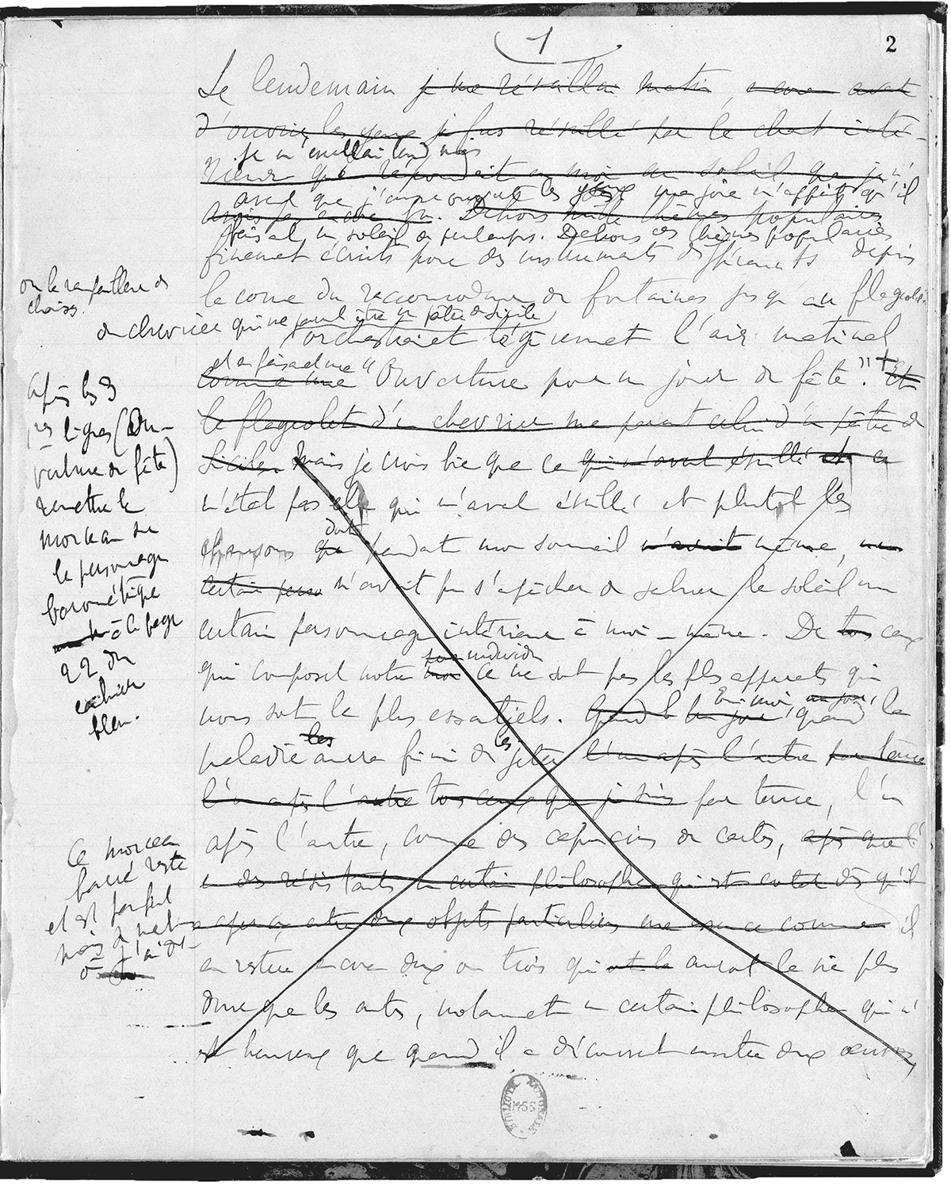
IN SEARCH OF LOST TIME, VOLUME 5
The Captive and The Fugitive
MARCEL PROUST
Edited and Annotated by William C. Carter
Yale UNIVERSITY PRESS
NEW HAVEN AND LONDON
Published with assistance from the foundation established in memory of Amasa Stone Mather of the Class of 1907, Yale College.
: Manuscript page from La Prisonnire . Bibliothque nationale de France (BnF). The passage shown here corresponds to our pages 11920. Photos on pages v (Proust, 1900) and ix (Proust, c. 1896) used with permission of Adoc-photos / Art Resource, NY.
Copyright 2023 by Yale University. Translation by C. K. Scott Moncrieff copyright 1993 by Random House, Inc., copyright 1981 by Chatto & Windus and Random House, Inc. All rights reserved. This book may not be reproduced, in whole or in part, including illustrations, in any form (beyond that copying permitted by Sections 107 and 108 of the U.S. Copyright Law and except by reviewers for the public press), without written permission from the publishers.
Yale University Press books may be purchased in quantity for educational, business, or promotional use. For information, please e-mail (U.K. office).
Set in Adobe Garamond with Scala Sans and Didot types by Newgen North America.
Printed in the United States of America.
Library of Congress Control Number: 2022932066 ISBN 978-0-300-18621-5 (hardcover : alk. paper)
A catalogue record for this book is available from the British Library.
This paper meets the requirements of ANSI/NISO Z39.48-1992 (Permanence of Paper).
10 9 8 7 6 5 4 3 2 1
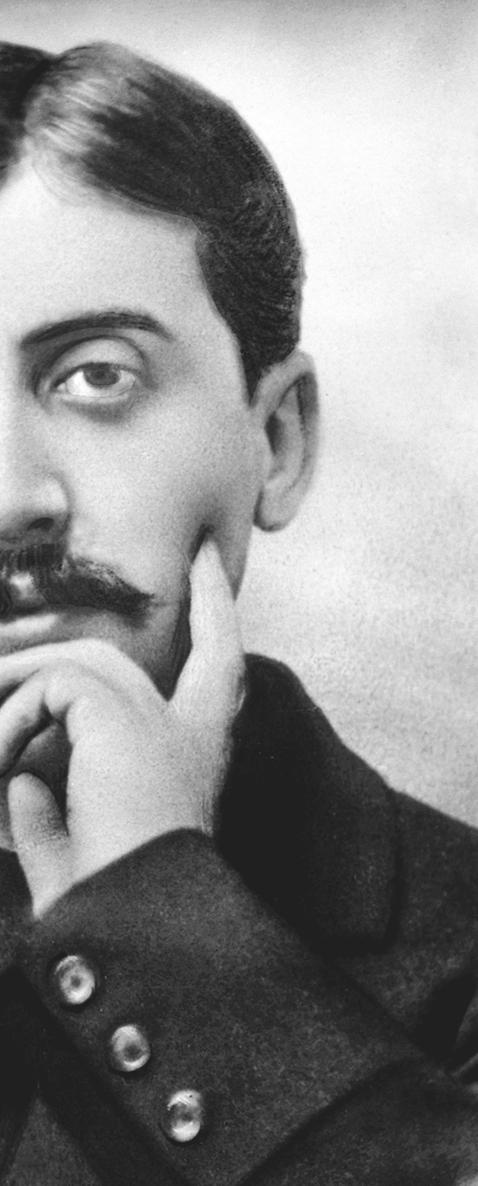
Contents
Acknowledgments
I remain deeply grateful to an exceptionally talented and knowledgeable group of scholars, writers, and readers of Proust, many of whom are good friends, whose expertise and skills proved invaluable in helping me to revise and annotate C. K. Scott Moncrieffs translation of In Search of Lost Time . They are Evelyne Bloch-Dano, Robert Bowden, Ronald Cohen, James Connelly, Sara Depczenski, Elyane Dezon-Jones, Hollie Harder, Elisabeth Howe, Marie-Colette Lefort-Posty, and Bryan Plank. This volume has benefited immeasurably from their many contributions. My sincere thanks to everyone at Yale University Press who is involved in this monumental project of creating a new edition of Prousts novel, especially Heather Gold, Eva Skewes, Susan Laity, and my longtime, incomparable editor Dan Heaton. Dan continues to be a cheerful and excellent guide on this long Proustian journey. I also wish to express my gratitude to my research assistant Nicolas Drogoul and to my wife, Lynn, for her constant support and encouragement.
Introduction
Marcel Proust died on November 18, 1922, at the age of fifty-one. In the last weeks of his illness he had time to revise only the first hundred pages or so of La Prisonnire ( The Captive ). This volume appeared in 1923, to be followed by La Fugitive , now titled Albertine disparue , in 1925 and by Le Temps retrouv ( Time Regained ) in 1927. Scott Moncrieff, alas, did not live to complete his extraordinary achievement by translating Le Temps retrouv , the last volume of Prousts novel. The two volumes included in this book, The Captive and The Fugitive , were the last of Scott Moncrieffs monumental contribution to Proust and his readers in the anglophone world. His translation of La Prisonnire was published in 1929 and that of La Fugitive in 1930. He died on February 28, 1930. For the latter title, Scott Moncrieff chose The Sweet Cheat Gone , a line from the poem Ghost by Walter de la Mare. The best English translation of Albertine disparue , although one far from ideal, might be Albertine Gone . We have maintained however, as have other editions, Prousts original title, La Fugitive. Le Temps retrouv was published in translation as Time Regained in 1931 by Stephen Hudson, the nom de plume of Prousts English friend Sydney Schiff, and as The Past Recaptured by Frederick A. Blossom in 1932. There have been additional translations since that time.
Scott Moncrieff used as The Captive s subtitle, My Life with Albertine, a phrase the Narrator uses a number of times throughout the volume. Albertine, loosely held as a prisoner in the Narrators apartment, is the object of his jealous obsession, an obsession that easily becomes indifference once he feels confident of her fidelity. Among remarkable passages we find a highly poetical and erotic one in which he watches Albertine sleeping. Another is the music of the street cries of Paris, whose ambulatory vendors barking their wares have long since disappeared. There are also beautiful meditations on music, especially Vinteuils newly discovered septet. Charluss insulting behavior toward the Verdurins leads to a humiliating quarrel that follows the performance of the septet. The volume concludes with the abrupt departure of Albertine.
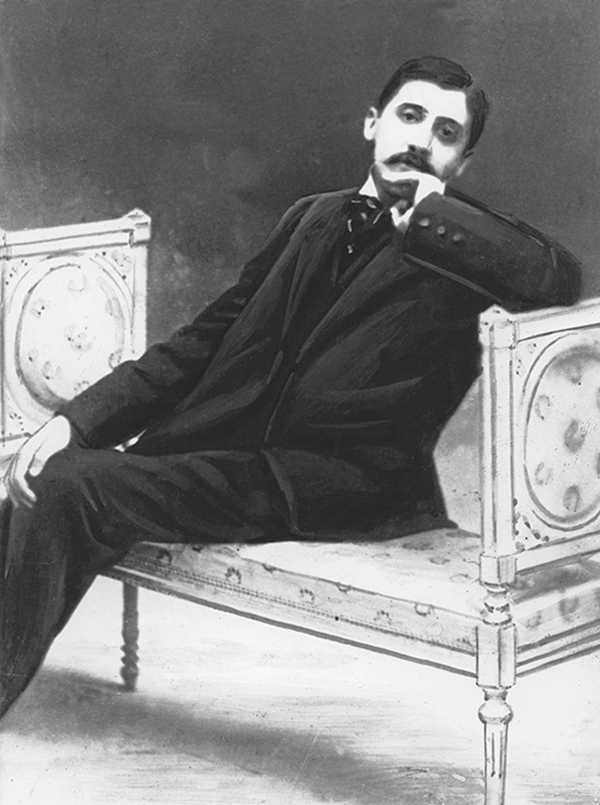
The Fugitive includes profound meditations on loss and time and memory, the Narrators sojourn in Venice, and revelations about the prospects and evolution of Gilberte Swann and Robert de Saint-Loup. The volume ends with the Narrators return to Combray as the guest of Gilberte. He is puzzled and disturbed by his lack of curiosity about the village and its environs. He is also astonished to learn that he completely misread the erotic signal that Gilberte sent him all those years ago when they were both so young at Combray.
Since I have expressed, in the earlier volumes, my wholehearted and sincere admiration for Charles Kenneth Scott Moncrieffs remarkable skill in translating Prousts novel, I will not repeat that here. Nor will I repeat my earlier explanations of how I approach revising, editing, and annotating these pages. I will say that in this book, as in the earlier ones, I have corrected some errors and have updated usage where appropriate. For example, Scott Moncrieff sometimes translated literally idiomatic expressions, thus creating phrases that make no sense in English even in context. In The Captive , Proust used the expression voler de leurs propres ailes , which means to stand on their own feet or to fend for themselves, whereas Scott Moncrieff rendered it as fly upon their own wings.
Due to Prousts untimely death, there are in the last three volumes inconsistencies that he would surely have corrected had he lived to do so. The most glaring of these are characters who die and then reappear in later episodes. I indicate any significant discrepancies in the notes. Proust left no section titles or chapter divisions for The Captive . He did however do so for the first two sections of The Fugitive : , he did indicate where the sections were to end. The titles for those chapters, Sojourn in Venice and A New Aspect of Robert de Saint-Loup, were provided by the editors of that volume, the name of one of whom is unknown. Prousts younger brother Robert oversaw the editing and the publication of all the posthumous volumes of the novel: La Prisonnire (The Captive), Albertine disparue (The Fugitive), and Le Temps retrouv (Time Regained).
In addition to consulting a number of standard reference works, I have read and am greatly indebted to the annotated French editions of Proust, especially la recherche du temps perdu , general editor Jean-Yves Tadi (Paris: Gallimard, 4 vols., 198789). The other editions consulted include La Prisonnire , 1984, and La Fugitive (Albertine disparue) 1986, general editor Jean Milly (Paris: GF Flammarion); and La Prisonnire , suivi de Albertine disparue , edited and annotated by Nathalie Mauriac Dyer (Paris: Livre de Poche, 1993); La Prisonnire and La Fugitive ( Albertine disparue ), edited and annotated by Thierry Laget (Paris: Robert Laffont), volume 3. I have translated and included passages that are now in standard French editions of the novel but that were not available in the editions that Scott Moncrieff translated.
Next pageFont size:
Interval:
Bookmark:
Similar books «The Captive and The Fugitive»
Look at similar books to The Captive and The Fugitive. We have selected literature similar in name and meaning in the hope of providing readers with more options to find new, interesting, not yet read works.
Discussion, reviews of the book The Captive and The Fugitive and just readers' own opinions. Leave your comments, write what you think about the work, its meaning or the main characters. Specify what exactly you liked and what you didn't like, and why you think so.

